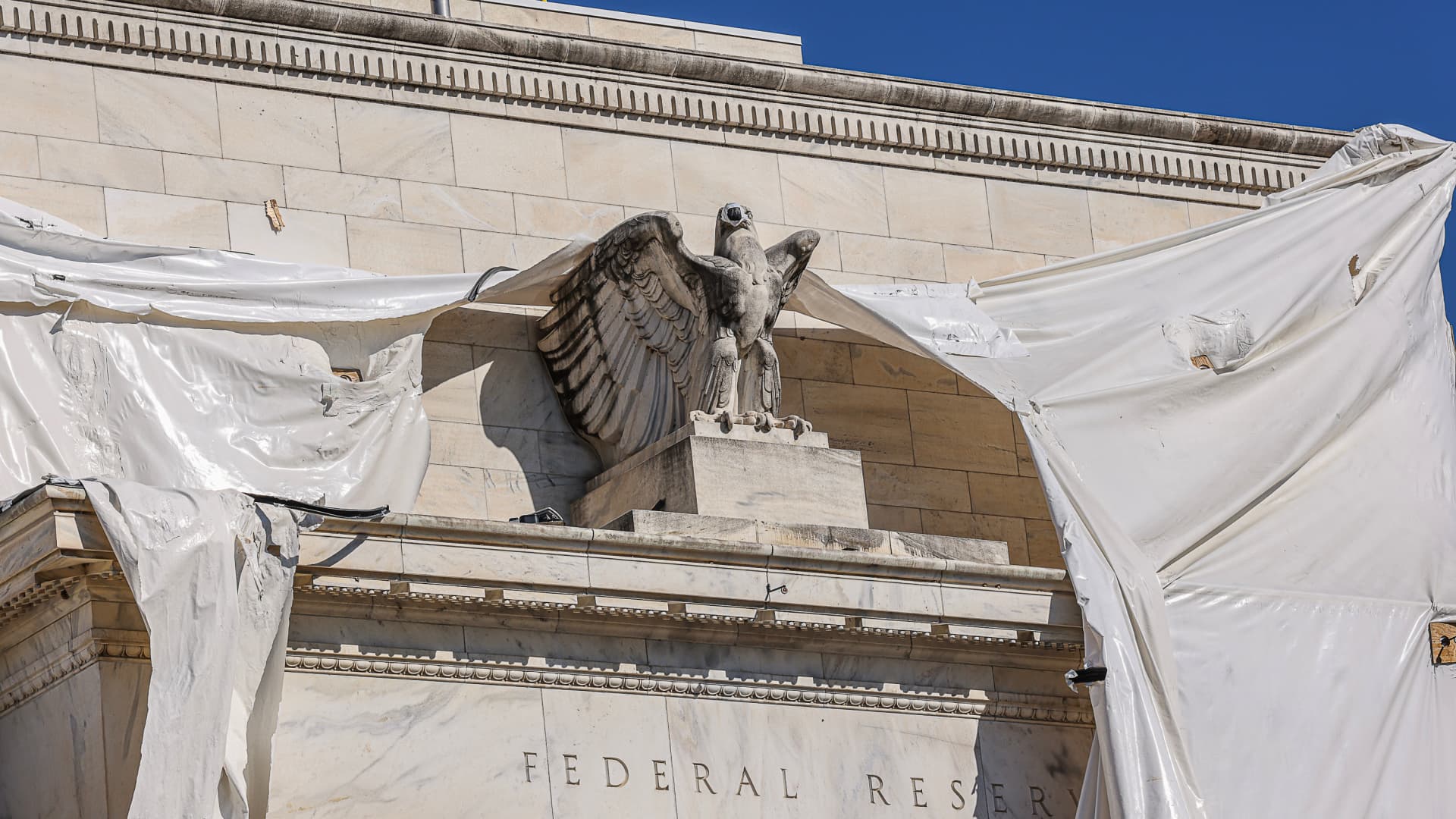A watchdog review into market trading from two former high-ranking Federal Reserve officials criticizes their actions but does not accuse either of doing anything illegal.
The report released Monday by the Fed’s Office of Inspector General takes issue with trades made by former regional presidents Robert Kaplan of Dallas and Eric Rosengren of Boston.
Both men left their posts in September 2021 — Kaplan to early retirement and Rosengren for medical reasons — amid criticism over trading that ultimately saw Fed Chair Jerome Powell and Governor Richard Clarida come under question along with Atlanta Fed President Raphael Bostic.
Revelations showed that some Fed officials engaged in market trading at a time when they also were considering important and delicate policy matters in the early days of the Covid pandemic in 2020. The Fed ultimately slashed interest rates and launched a bevy of lending and liquidity programs that helped prop up financial markets as the pandemic crushed the U.S. economy.
While Clarida is mentioned in the OIG report, the details focus on Kaplan and Rosengren’s actions. The report concludes that their actions resulted in conflicts of interest that raised issues over impartiality and the proper conduct of central bank officials.
CNBC has reached out to both former officials for comment. Kaplan, who traded millions in stocks and options and other securities, has said that his actions were in compliance with standards in place at the time.
With regard to Rosengren, the report faults him for not disclosing multiple trades on his 2020 ethics forms. Moreover, the report noted “multiple discrepancies” in brokerage statements and trading data.
Trades he made regarding real estate investment trusts at a time when the Fed was buying mortgage-backed securities “create an ‘appearance of a conflict of interest’ that could cause a reasonable person to question Mr. Rosengren’s impartiality under FRB Boston’s code of conduct,” the report said.
On Kaplan, the report states that the OIG “did not find that his trading activities violated laws, rules, regulations, or policies related to trading activities as investigated by our office.”
However, the OIG faults Kaplan for not disclosing specific information regarding the selling of stock option contracts.
“This lack of information, in our opinion, did not support public confidence in the impartiality and integrity of the policymakers and senior staff carrying out the public mission of the [Federal Open Market Committee’s] work, especially during this critical time period when the Federal Reserve was taking monetary policy actions to address the effects of the COVID-19 pandemic on the U.S. economy,” the report stated.
There is a notation that Kaplan and the Dallas Fed were not specific in the disclosures because they “determined that this approach was permissible because it was consistent with Chair Powell’s reporting” on his disclosure forms.
Since the controversy, the Fed has revamped its trading rules and now prohibits officials from owning stocks, bonds and cryptocurrencies.
The new rules “aim to support public confidence in the impartiality and integrity of the Committee’s work by guarding against even the appearance of any conflict of interest,” said a statement issued when the Fed made the changes in February 2022.
